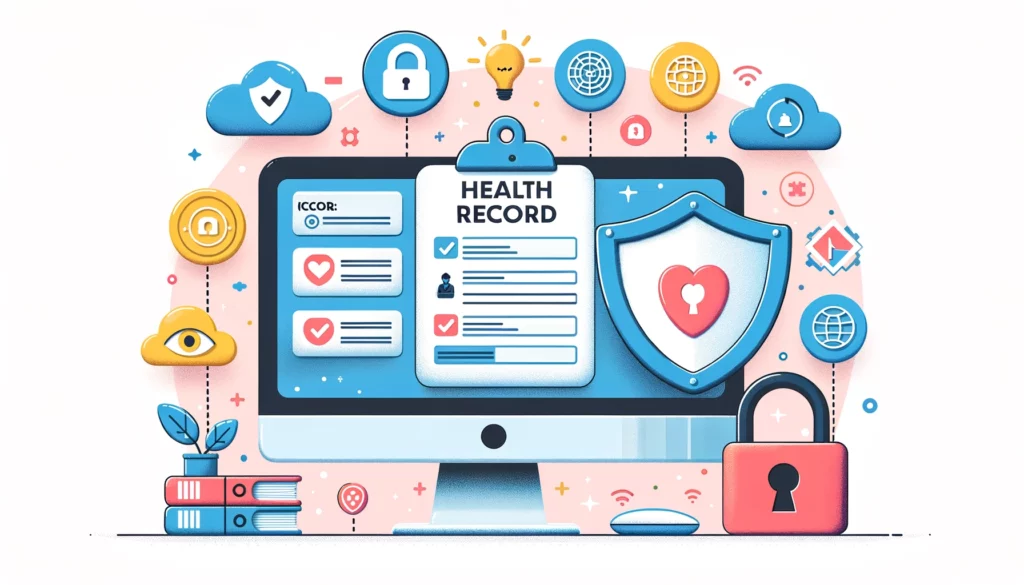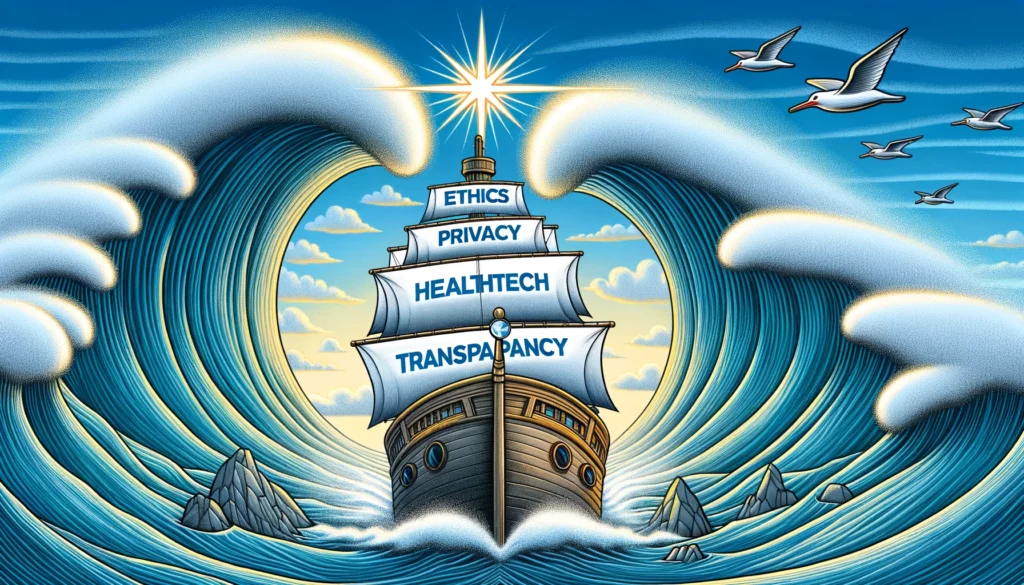Switzerland: Leading the Healthtech Revolution

This article discusses the significant healthtech innovations from Switzerland and their impact on healthcare. It also addresses the challenges associated with implementing and popularizing these technologies.
A new wave of digital transformation is coming to change healthcare in Switzerland and beyond. A new wave of digital transformation is coming to change healthcare in Switzerland and beyond.
Technology advancements and the need for personalized and efficient healthcare services drive this transformation. Swiss innovators, startups, and established organizations are reshaping how medical professionals and patients interact.
Switzerland is at the forefront of embracing digital health and medical informatics to establish itself as a leader in digital healthcare. The country’s strong biopharma heritage combined with cutting-edge technologies is propelling Switzerland towards its digital destiny in healthcare.
The country has become a hub for new medical technology and digital health projects. This is because of the presence of skilled professionals, entrepreneurs, and investment in research.
Switzerland dedicates itself to finding new ways to provide healthcare, such as AI, data analytics, remote monitoring, and telemedicine.
New digital advancements can change how we diagnose, treat, and care for patients. They can also help with problems like expensive healthcare, aging populations, and lack of medical professionals in rural areas.
AI and ML in Swiss Healthcare

One of the most significant technological advancements in healthtech is the integration of artificial intelligence and machine learning into the healthcare environment.
New technologies in Swiss healthcare can change how doctors treat patients and conduct research. These technologies offer exciting opportunities for medical professionals and patients.
AI and machine learning assist healthcare providers in quickly analyzing large amounts of data. This leads to improved diagnoses and the identification of patterns that indicate potential health risks.
This can lead to earlier detection of illnesses, more targeted treatments, and ultimately better patient outcomes.
Swiss-based startups and AI companies are trailblazers in this area, using AI and machine learning to advance personalised medicine and improve the quality of healthcare delivery.
Switzerland offers a supportive environment for digital health startups to thrive, through programs like the Digital Health Nation Innovation Booster. This helps entrepreneurs transform ideas into solutions delivering value for patients and healthcare professionals
Here are 7 examples of AI companies and innovations in healthcare in Switzerland:
- SOPHiA GENETICS: Provides AI-powered genomic analysis solutions for personalized medicine and drug development. Headquartered in Saint-Sulpice, Switzerland.
- MindMaze: Develops digital neurotherapeutics using VR, AI and brain imaging for neurological conditions like stroke, Alzheimer’s and Parkinson’s disease. Based in Lausanne.
- Insightness: Develops AI solutions for medical imaging, including detection of lung cancer, cardiovascular disease and bone fractures. Based in Zurich.
- Ava: Produces a fertility tracking bracelet that uses AI and data analysis to detect a woman’s fertile window. Based in Zurich.
- Lunaphore Technologies: Develops cancer diagnostics tools using microfluidics and machine learning for tissue staining and analysis. Based in Lausanne.
- Versantis: Develops artificial liver technology using microfluidics and machine learning to treat acute liver failure. Based in Zurich.
- Abionic: Develops rapid nanotechnology diagnostic solutions using machine learning, including for sepsis and anaphylaxis. Based in Lausanne.
As these technologies develop, they will have a bigger impact on healthcare. AI and machine learning will become essential tools in improving patient care.
Switzerland is cultivating cross-fertilisation between data analytics and medicine through multidisciplinary degree (Medical informatics) programs like the one at FHNW. This is creating medical informatics experts to drive the adoption of technologies like AI and machine learning in healthcare.
Telemedicine and Remote Patient Monitoring

Telemedicine is an important part of healthtech, allowing patients to see doctors no matter where they are.
This technology has proven particularly valuable in rural areas of Switzerland, where access to healthcare services is often limited.
At its core, telemedicine allows medical professionals to hold virtual consultations with their patients, using video conferencing technology or similar platforms.
This not only saves patients time and resources but also enables healthcare providers to treat more patients in less time.
Swiss companies such as Medgate and Onedoc are pioneering telemedicine services, offering digital platforms for consultations, prescription management, and appointment booking.
As this technology becomes more widespread, telemedicine has the potential to significantly improve access to healthcare and enhance the patient experience.
Remote patient monitoring is another healthtech innovation that is gaining traction in Switzerland.
By utilising connected devices and wearables to monitor patients’ vital signs, healthcare providers can provide personalised care and detect early warning signs of potential health complications.
The Swiss Personalized Health Network initiative is establishing mechanisms to enable nationwide sharing of health data to advance precision medicine.
Swiss-based Ava, for instance, has developed a wearable device to monitor women’s fertility, ushering in a new era of intelligent fertility tracking.
Electronic Health Records and Data Security

The adoption of electronic health records (EHRs) is a crucial step in the digital transformation of Switzerland’s healthcare sector. Putting medical data into a digital format allows healthcare providers to easily access and update patient records. This makes it easier for medical professionals and organizations to share information.
Overview of Electronic Health Records in Switzerland
While Switzerland has been taking steady steps towards implementing a national EHR system, ensuring data security and privacy remains a top concern. As medical information becomes increasingly digitised, protecting sensitive patient data from unauthorised access or malicious attacks is of paramount importance.
- Switzerland is gradually implementing a national electronic health record (EHR) system to digitize patient records and facilitate information sharing between healthcare providers. This is expected to improve care coordination, efficiency, and quality.
- Adoption of EHRs is mandatory for hospitals but voluntary for ambulatory care and private practices. Patients have full control over what health information they want to share electronically.
- Key initiatives driving EHR adoption include the federal eHealth Strategy, the implementation of regional EHR exchange communities, and federal laws like the Federal Act on Electronic Patient Records.
Data Protection and Privacy
Swiss healthcare and technology must collaborate for strong security measures, balancing innovation and risk reduction. Teaching healthcare workers about data protection is crucial, emphasizing the importance of data security in the digital era.
- Protecting sensitive patient data is a top priority. Switzerland has strict data privacy laws like the Federal Act on Data Protection (FADP) that govern the collection, storage, and sharing of health data.
- Healthcare providers must get patient consent before sharing EHR data, unless there is a legal obligation or overriding public health interest. Patients can determine the level of access.
- Providers must implement robust security measures for access control, encryption, auditing, and more. The Federal Data Protection and Information Commissioner (FDPIC) oversees compliance.
- Switzerland’s upcoming revised FADP further strengthens data protection aligned with the EU’s GDPR. Key changes include explicit consent for sensitive data processing, mandatory reporting of high-risk breaches, and increased penalties.
The decentralized nature of Switzerland’s healthcare system makes nationwide interoperability and data exchange difficult. Lack of EHR system compatibility across cantons is a key obstacle.
With strong government backing, maturing technical standards, and growing clinical demand, EHR adoption is expected to accelerate. This will gradually enable nationwide health information exchange.
Technical and governance solutions need to balance innovation and expanded data use with robust data protection and building patient trust. This is key for realizing the full benefits of EHRs in Switzerland.
Navigating Ethical Challenges in Healthtech Adoption

Switzerland’s fast healthtech progress brings promise but also ethical questions and concerns that need careful thought. We must carefully evaluate the pros and cons of these new technologies. This evaluation is necessary to ensure responsible use in healthcare.
AI and machine learning using personal medical data raise concerns about consent, data ownership, and biases in algorithms. With telemedicine reducing in-person visits, we must address concerns about doctor-patient relationships and avoiding misdiagnosis.
Who’s involved?
- Academia: World-class universities in Switzerland like University of Basel are major drivers of healthcare innovation through research and teaching.
- Industry: Large companies like Novartis and Roche as well as 700+ life sciences companies contribute significantly to healthcare innovation.
- Startups: Switzerland has become a hotspot for digital health, medtech and biotech startups, with over 190 million CHF invested recently in Basel-based biotech startups.
- Government: Supportive programs like the Digital Health Nation Innovation Booster provide funding and support for developing radical healthcare technologies.
Conclusion
Switzerland is committed to improving healthcare by innovating in healthtech, making it more accessible and of higher quality. Switzerland uses AI, machine learning, telemedicine, and digital health solutions to improve healthcare and make it more patient-focused and efficient.
However, as with any drastic shift in practices, the journey is fraught with challenges. Switzerland must remain vigilant in addressing data security concerns, ethical implications, and the needs of healthcare professionals and patients throughout this process.
By maintaining a proactive, collaborative, and responsible approach, Switzerland can harness the opportunities of its healthtech revolution and solidify its position as a pioneer in the global healthcare ecosystem.
If you like this, make Swiss Observer your Swiss news source. Subscribe now!